Discover Congressional Dish
Congressional Dish

334 Episodes
Reverse
In this episode, hear testimony that Republican leadership refused to make part of the official Congressional Record—stories from U.S. citizens who were violently arrested and jailed by agents of the Department of Homeland Security, often while clearly identifying themselves as Americans. This is not rhetoric, speculation, or partisan spin; it is sworn testimony, backed by a Senate investigation, and it raises a terrifying question: if this can happen to them, what stops it from happening to any of us? View the show notes on our website at https://congressionaldish.com/cd329-citizens-detained Please Support Congressional Dish – Quick Links Contribute monthly or a lump sum via PayPal Support Congressional Dish via Patreon (donations per episode) Send Zelle payments to: Donation@congressionaldish.com Send Venmo payments to: @Jennifer-Briney Send Cash App payments to: $CongressionalDish or Donation@congressionaldish.com Use your bank's online bill pay function to mail contributions to: 5753 Hwy 85 North, Number 4576, Crestview, FL 32536. Please make checks payable to Congressional Dish Thank you for supporting truly independent media!
In this two-topic episode, we break down what became law in November—including the shutdown deal that reopened the government and the dingleberries that were quietly slipped into it. Then we revisit the hearing on the firing of the CDC Director, focusing on a politicized vaccine advisory committee that has changed its recommendation for the hepatitis B vaccine for newborns. View the show notes on our website at https://congressionaldish.com/cd328-november-laws-vaccine-chaos Please Support Congressional Dish – Quick Links Contribute monthly or a lump sum via PayPal Support Congressional Dish via Patreon (donations per episode) Send Zelle payments to: Donation@congressionaldish.com Send Venmo payments to: @Jennifer-Briney Send Cash App payments to: $CongressionalDish or Donation@congressionaldish.com Use your bank's online bill pay function to mail contributions to: 5753 Hwy 85 North, Number 4576, Crestview, FL 32536. Please make checks payable to Congressional Dish Thank you for supporting truly independent media!
Millions of people have trusted 23andMe with their most intimate data—but what happens when a company holding 15 million DNA profiles goes bankrupt? In this episode, you'll hear highlights from bipartisan House and Senate hearings exposing how genetic data can be hacked, shared, retained, and even sold under current U.S. law. Using testimony from lawmakers, legal experts, and 23andMe leaders, this episode uncovers the alarming gaps in federal privacy protections and explains why your genetic information—and even your relatives'—may be far less secure than you think. View the show notes on our website at https://congressionaldish.com/cd327-23andme-and-the-sale-of-your-dna Please Support Congressional Dish – Quick Links Contribute monthly or a lump sum via PayPal Support Congressional Dish via Patreon (donations per episode) Send Zelle payments to: Donation@congressionaldish.com Send Venmo payments to: @Jennifer-Briney Send Cash App payments to: $CongressionalDish or Donation@congressionaldish.com Use your bank's online bill pay function to mail contributions to: 5753 Hwy 85 North, Number 4576, Crestview, FL 32536. Please make checks payable to Congressional Dish Thank you for supporting truly independent media!
In this episode, you'll hear what actually happened in Congress during October 2025, a month dominated by a record-breaking shutdown. While the House was on vacation, the Senate enacted mass confirmations of over 100 Trump-aligned nominees—many with extreme views, conflicts of interest, or industry ties—as well as the surprising bipartisan pushback against Trump's global tariff abuses. We also examine the Senate's failed attempt to stop Trump's unauthorized overseas boat strikes. View the show notes on our website at https://congressionaldish.com/cd326-october-2025-slippery-barnacles Please Support Congressional Dish – Quick Links Contribute monthly or a lump sum via PayPal Support Congressional Dish via Patreon (donations per episode) Send Zelle payments to: Donation@congressionaldish.com Send Venmo payments to: @Jennifer-Briney Send Cash App payments to: $CongressionalDish or Donation@congressionaldish.com Use your bank's online bill pay function to mail contributions to: 5753 Hwy 85 North, Number 4576, Crestview, FL 32536. Please make checks payable to Congressional Dish Thank you for supporting truly independent media!
After months of chaos under Trump's second term, a shocking Senate hearing exposes how HHS Secretary Robert F. Kennedy Jr. has politicized the CDC—firing scientists, silencing evidence, and demanding blind approval of vaccine changes. This episode dives into testimony from former CDC leaders and the rare moment of bipartisan oversight that could mark a turning point for accountability in Congress. View the show notes on our website at https://congressionaldish.com/cd325-politics-trump-science-at-the-cdc Please Support Congressional Dish – Quick Links Contribute monthly or a lump sum via PayPal Support Congressional Dish via Patreon (donations per episode) Send Zelle payments to: Donation@congressionaldish.com Send Venmo payments to: @Jennifer-Briney Send Cash App payments to: $CongressionalDish or Donation@congressionaldish.com Use your bank's online bill pay function to mail contributions to: 5753 Hwy 85 North, Number 4576, Crestview, FL 32536. Please make checks payable to Congressional Dish Thank you for supporting truly independent media! Contact Your Members of Congress: (202) 224-3121
A summary of September 2025. From new laws on veterans' health, privacy, and export controls to a wave of Trump-era nominees confirmed in bulk — including several with jaw-dropping conflicts of interest — this month was a mess. In addition to new laws and confirmations, there were failed censure stunts, a delayed swearing-in that's blocking a vote on the Epstein files, and yet another avoidable government shutdown. Both parties are playing games while regular people pay the price. View the show notes on our website at https://congressionaldish.com/cd324-sept-2025-destruction-of-norms Please Support Congressional Dish – Quick Links Contribute monthly or a lump sum via PayPal Support Congressional Dish via Patreon (donations per episode) Send Zelle payments to: Donation@congressionaldish.com Send Venmo payments to: @Jennifer-Briney Send Cash App payments to: $CongressionalDish or Donation@congressionaldish.com Use your bank's online bill pay function to mail contributions to: 5753 Hwy 85 North, Number 4576, Crestview, FL 32536. Please make checks payable to Congressional Dish Thank you for supporting truly independent media!
Congress is once again playing with fire, and this time it's the Democrats holding the match. In today's episode, I'm sounding the alarm about a looming government shutdown that could hit at midnight on September 30th. History tells us shutdowns backfire on the party that demands partisan add-ons to must-pass funding bills, yet Democrats are betting they can use that same failed strategy and escape the blame. I'll walk you through the shutdown showdowns of the past decade, explain what's different—and more dangerous—about this moment, and lay out the real costs to workers, taxpayers, and the stability of our government. Most importantly, I'll explain why keeping the government open isn't just smart politics—it's essential for protecting our government. View the show notes on our website at https://congressionaldish.com/cd323-shutdown-bad Please Support Congressional Dish – Quick Links Contribute monthly or a lump sum via PayPal Support Congressional Dish via Patreon (donations per episode) Send Zelle payments to: Donation@congressionaldish.com Send Venmo payments to: @Jennifer-Briney Send Cash App payments to: $CongressionalDish or Donation@congressionaldish.com Use your bank's online bill pay function to mail contributions to: 5753 Hwy 85 North, Number 4576, Crestview, FL 32536. Please make checks payable to Congressional Dish Thank you for supporting truly independent media! Contact Your Members of Congress: (202) 224-3121
Since the beginning of this Congress, there have been 24 new laws signed and dozens of confirmations shaping our government in President Trump's second term. From the Laken Riley Act's attack on immigrant rights, to the One Big Beautiful Bill's devastating effects on healthcare and the environment, to quiet but powerful confirmations of billionaires, bankers, and loyalists into positions that control our economy and foreign policy, this is a moment when Congress is rewriting the rules of our democracy. If you want to understand how decisions made in Washington are enriching corporations, weakening protections, and reshaping the future we all live in, this is an episode you can't afford to skip. View the show notes on our website at https://congressionaldish.com/cd322-last-quarter-in-congress-indefinite-detention-regulation-murders-empowered-trump-minions Please Support Congressional Dish – Quick Links Contribute monthly or a lump sum via PayPal Support Congressional Dish via Patreon (donations per episode) Send Zelle payments to: Donation@congressionaldish.com Send Venmo payments to: @Jennifer-Briney Send Cash App payments to: $CongressionalDish or Donation@congressionaldish.com Use your bank's online bill pay function to mail contributions to: 5753 Hwy 85 North, Number 4576, Crestview, FL 32536. Please make checks payable to Congressional Dish Thank you for supporting truly independent media!
Part 2 of the "Big Beautiful Bill". In this episode, we examine tax cuts and tax increases for the wealthy, the corporations, and for the rest of us. We examine the winners and losers chosen by the Republicans and what it all means for you. View the show notes on our website at https://congressionaldish.com/cd321-one-big-beautiful-bill-the-money Please Support Congressional Dish – Quick Links Contribute monthly or a lump sum via PayPal Support Congressional Dish via Patreon (donations per episode) Send Zelle payments to: Donation@congressionaldish.com Send Venmo payments to: @Jennifer-Briney Send Cash App payments to: $CongressionalDish or Donation@congressionaldish.com Use your bank's online bill pay function to mail contributions to: 5753 Hwy 85 North, Number 4576, Crestview, FL 32536. Please make checks payable to Congressional Dish Thank you for supporting truly independent media!
The One Big Beautiful Bill is now officially law, ushering in a sweeping wave of reforms that promise to reshape the nation. In this episode, we unpack the concerning changes it brings to immigration policy, environmental protections, and health care coverage—three pillars that will directly impact millions of lives. View the show notes on our website at https://congressionaldish.com/cd320-one-big-beautiful-bill-a-dangerous-law Please Support Congressional Dish – Quick Links Contribute monthly or a lump sum via PayPal Support Congressional Dish via Patreon (donations per episode) Send Zelle payments to: Donation@congressionaldish.com Send Venmo payments to: @Jennifer-Briney Send Cash App payments to: $CongressionalDish or Donation@congressionaldish.com Use your bank's online bill pay function to mail contributions to: 5753 Hwy 85 North, Number 4576, Crestview, FL 32536. Please make checks payable to Congressional Dish Thank you for supporting truly independent media! Contact Your Members of Congress: (202) 224-3121
Drones have become a powerful tool in modern warfare—used effectively by our allies against enemy forces, and, more controversially, against unarmed captives. But is the United States ready to defend itself against drone threats? In this episode, we bring you testimony from five recent congressional hearings, featuring high-ranking military and DHS officials, as well as top experts, sounding the alarm on the growing dangers in our skies. View the show notes on our website at https://congressionaldish.com/cd319-beware-the-drones Please Support Congressional Dish – Quick Links Contribute monthly or a lump sum via PayPal Support Congressional Dish via Patreon (donations per episode) Send Zelle payments to: Donation@congressionaldish.com Send Venmo payments to: @Jennifer-Briney Send Cash App payments to: $CongressionalDish or Donation@congressionaldish.com Use your bank's online bill pay function to mail contributions to: 5753 Hwy 85 North, Number 4576, Crestview, FL 32536. Please make checks payable to Congressional Dish Thank you for supporting truly independent media!
The House version of the "Big, Beautiful Bill" includes a 10-year moratorium on state and local regulation of AI models and systems. In this episode, listen to highlights from a congressional hearing held the day before the bill passed — including discussion of this sneaky little dingleberry. View the show notes on our website at https://congressionaldish.com/cd318-ai-regulation-moratorium Please Support Congressional Dish – Quick Links Contribute monthly or a lump sum via PayPal Support Congressional Dish via Patreon (donations per episode) Send Zelle payments to: Donation@congressionaldish.com Send Venmo payments to: @Jennifer-Briney Send Cash App payments to: $CongressionalDish or Donation@congressionaldish.com Use your bank's online bill pay function to mail contributions to: 5753 Hwy 85 North, Number 4576, Crestview, FL 32536. Please make checks payable to Congressional Dish Thank you for supporting truly independent media!
The House of Representatives has passed their version of the "Big, Beautiful Bill" and parts of it are extraordinarily dangerous and must be stopped. As the Senate prepares to edit the BBB, discover the hidden dangers so that you can take action against the parts that threaten you the most. View the show notes on our website at https://congressionaldish.com/cd317-elimination-essentials-in-the-big-beautiful-bill Please Support Congressional Dish – Quick Links Contribute monthly or a lump sum via PayPal Support Congressional Dish via Patreon (donations per episode) Send Zelle payments to: Donation@congressionaldish.com Send Venmo payments to: @Jennifer-Briney Send Cash App payments to: $CongressionalDish or Donation@congressionaldish.com Use your bank's online bill pay function to mail contributions to: 5753 Hwy 85 North, Number 4576, Crestview, FL 32536. Please make checks payable to Congressional Dish Thank you for supporting truly independent media!
The National Transportation Safety Board has released a preliminary report with previously unknown facts about the crash between a Black Hawk Army helicopter and CRJ passenger jet that killed 67 people on January 29, 2025. In this episode, listen to testimony about that report along with testimony from FAA and military officials about actions they have taken since the crash. Also included in this episode is a brief summary of what we know so far about the disturbing air traffic control outages that have occurred at airports in Newark and Denver. View the show notes on our website at https://congressionaldish.com/cd316-the-dca-plane-crash Please Support Congressional Dish – Quick Links Contribute monthly or a lump sum via PayPal Support Congressional Dish via Patreon (donations per episode) Send Zelle payments to: Donation@congressionaldish.com Send Venmo payments to: @Jennifer-Briney Send Cash App payments to: $CongressionalDish or Donation@congressionaldish.com Use your bank's online bill pay function to mail contributions to: 5753 Hwy 85 North, Number 4576, Crestview, FL 32536. Please make checks payable to Congressional Dish Thank you for supporting truly independent media!
Recent Supreme Court decisions have significantly altered the balance of power in the federal government, forcing Congress to rethink how it writes laws. In this episode, learn which decisions caused the shift, what the consequences are, how Congress is responding, and what options exist to push back against this new reality. View the show notes on our website at https://congressionaldish.com/cd315-judicial-power Please Support Congressional Dish – Quick Links Contribute monthly or a lump sum via PayPal Support Congressional Dish via Patreon (donations per episode) Send Zelle payments to: Donation@congressionaldish.com Send Venmo payments to: @Jennifer-Briney Send Cash App payments to: $CongressionalDish or Donation@congressionaldish.com Use your bank's online bill pay function to mail contributions to: 5753 Hwy 85 North, Number 4576, Crestview, FL 32536. Please make checks payable to Congressional Dish Thank you for supporting truly independent media!
President Trump keeps saying the United States needs to "have Greenland," but why? In this episode, listen to testimony to Congress about the idea of the United States taking ownership of Greenland, which is not being laughed out of the room. View the show notes on our website at https://congressionaldish.com/cd314-greenland Please Support Congressional Dish – Quick Links Contribute monthly or a lump sum via PayPal Support Congressional Dish via Patreon (donations per episode) Send Zelle payments to: Donation@congressionaldish.com Send Venmo payments to: @Jennifer-Briney Send Cash App payments to: $CongressionalDish or Donation@congressionaldish.com Use your bank's online bill pay function to mail contributions to: 5753 Hwy 85 North, Number 4576, Crestview, FL 32536. Please make checks payable to Congressional Dish Thank you for supporting truly independent media!
There is a lot of public anger towards nine Democratic Party Senators for helping Republicans pass a funding bill into law in mid-March. In this episode, we examine the details of the funding law in order to understand the deceptions that lead to that anger. Americans are being played. View the show notes on our website at https://congressionaldish.com/cd313-democratic-deception
President Trump has been threatening to "take back" the Panama Canal since he regained power. In this episode, listen to testimony from officials serving on the Federal Maritime Commission who explain why the Panama Canal has become a focus of the administration and examine whether or not we need to be concerned about an impending war for control of the canal. View the show notes on the Congressional Dish website at https://congressionaldish.com/cd312-threatening-panamas-canal/ Please Support Congressional Dish – Quick Links Contribute monthly or a lump sum via PayPal Support Congressional Dish via Patreon (donations per episode) Send Zelle payments to: Donation@congressionaldish.com Send Venmo payments to: @Jennifer-Briney Send Cash App payments to: $CongressionalDish or Donation@congressionaldish.com Use your bank's online bill pay function to mail contributions to: 5753 Hwy 85 North, Number 4576, Crestview, FL 32536. Please make checks payable to Congressional Dish Thank you for supporting truly independent media! Background Sources Recommended Congressional Dish Episodes CD292: Sabotaging Palestine CD287: War Money Current Events around the Panama Canal "Panama president calls Trump's talk of 'reclaiming' the Panama Canal a lie." March 5, 2025. the Associated Press. "Blackrock to buy Hong Kong firm's Panama Canal port stake amid Trump pressure." Sabrina Valle, Suzanne McGee, and Michael Martina. March 4, 2025. Reuters. "Mapping China's Influence around the Panama Canal." Matt Murphy, Jake Horton and Erwan Rivault. February 14, 2025. BBC. "Low water levels in Panama Canal due to increasing demand exacerbated by El Nino event." May 1, 2024. World Weather Attribution. "59 Iran-Linked Ships Stripped of Panamanian Flag, US DOS Confirms." World Maritime News Staff. March 15, 2019. World Maritime News. "Chinese Consortium to Build Fourth Panama Canal Bridge." July 29, 2018. Reuters. Panama Canal Treaty of 1977 "Panama Canal Treaty of 1977." U.S. Department of State. The Chinese "Belt and Road Initiative" "Belt and Road Initiative." Michele Ruta. March 29, 2018. World Bank Group. The Trump-Gaza Video Donald Trump shares 'what's next' for Gaza AI video on his Truth Social Platform February 26, 2025. Sky News. Laws Section 19 of the Merchant Marine Act Audio Sources President Trump Threatens to "Reclaim" The Panama Canal during his March 4, 2025 Presidential Address Examining the Panama Canal and Its Impact on U.S. Trade and National Security Senate Committee on Commerce, Science, and Transportation January 28, 2025 Watch on YouTube Witnesses: Louis E. Sola, Chairman, Federal Maritime Commission (FMC) Daniel B. Maffei, Commissioner, FMC Eugene Kontorovich, Professor, Scalia Law School, George Mason University Joseph Kramek, President & CEO, World Shipping Council Clips 17:30 Sen. Ted Cruz (R-TX): Between the American construction of the Panama Canal, the French effort to build an isthmus canal, and America's triumphant completion of that canal, the major infrastructure projects across Panama cost more than 35,000 lives. For the final decade of work on the Panama Canal, the United States spent nearly $400 million, equivalent to more than $15 billion today. The Panama Canal proved a truly invaluable asset, sparing both cargo ships and warships the long journey around South America. When President Carter gave it away to Panama, Americans were puzzled, confused, and many outraged. With the passage of time, many have lost sight of the canal's importance, both to national security and to the US economy. 18:45 Sen. Ted Cruz (R-TX): But the Panama Canal was not just given away. President Carter struck a bargain. He made a treaty. And President Trump is making a serious and substantive argument that that treaty is being violated right now. 19:10 Sen. Ted Cruz (R-TX): President Trump has highlighted two key issues. Number one, the danger of China exploiting or blocking passage through the canal, and number two, the exorbitant costs for transit. 19:20 Sen. Ted Cruz (R-TX): Chinese companies are right now building a bridge across the canal at a slow pace, so as to take nearly a decade. And Chinese companies control container points ports at either end. The partially completed bridge gives China the ability to block the canal without warning, and the ports give China ready observation posts to time that action. This situation, I believe, poses acute risks to US national security. 19:50 Sen. Ted Cruz (R-TX): Meanwhile, the high fees for canal transit disproportionately affect Americans, because US cargo accounts for nearly three quarters of Canal transits. US Navy vessels pay additional fees that apply only to warships. Canal profits regularly exceed $3 billion. This money comes from both American taxpayers and consumers in the form of higher costs for goods. American tourists aboard cruises, particularly those in the Caribbean Sea, are essentially captive to any fees Panama chooses to levy for canal transits, and they have paid unfair prices for fuel bunkering at terminals in Panama as a result of government granted monopoly. Panama's government relies on these exploitative fees. Nearly 1/10 of its budget is paid for with canal profit. 21:25 Sen. Ted Cruz (R-TX): Panama has for years flagged dozens of vessels in the Iranian ghost fleet, which brought Iran tens of billions of dollars in oil profits to fund terror across the world. 21:40 Sen. Ted Cruz (R-TX): And Chinese companies have won contracts, often without fair competition, as the infamous Belt and Road Initiative has come to Panama. China often engages in debt trap diplomacy to enable economic and political coercion. In Panama, it also seems to have exploited simple corruption. 32:40 Louis Sola: The Panama Canal is managed by the Panama Canal Authority, ACP, an independent agency of the Panamanian government. The ACP is a model of public infrastructure management, and its independence has been key to ensure a safe and reliable transit of vessels critical to the US and global commerce. 33:25 Louis Sola: In contrast, the broader maritime sector in Panama, including the nation's ports, water rights, and the world's largest ship registry, falls under the direct purview of the Panamanian government. 33:35 Louis Sola: Unfortunately, this sector has faced persistent challenges, including corruption scandals and foreign influence, particularly from Brazil and China. These issues create friction with the ACP, especially as it works to address long term challenges such as securing adequate water supplies for the canal. 33:55 Louis Sola: Although the ACP operates independently, under US law both the ACP and the government of Panama's maritime sector are considered one in the same. This means that any challenges in Panama's maritime sector, including corruption, lack of transparency, or foreign influence, can have a direct or indirect impact on the operations and long term stability of the canal. This legal perspective highlights the need for diligence in monitoring both the ACP's management and Panama government's policies affecting maritime operations. 34:30 Louis Sola: Since 2015, Chinese companies have increased their presence and influence throughout Panama. Panama became a member of the Belt and Road Initiative and ended its diplomatic relations with Taiwan. Chinese companies have been able to pursue billions of dollars in development contracts in Panama, many of which were projects directly on or adjacent to the Panama Canal. Many were no bid contracts. Labor laws were waived, and the Panamanian people are still waiting to see how they've been benefited. It is all more concerning that many of these companies are state-owned, and in some cases, even designated as linked to the People's Liberation Army. We must address the significant growing presence and influence of China throughout the Americas and in Panama, specifically. 35:20 Louis Sola: American companies should play a leading role in enhancing the canal's infrastructure. By supporting US firms, we reduce reliance on Chinese contractors and promote fair competition. 36:55 Daniel Maffei: Because the canal is essentially a waterway bridge over mountainous terrain above sea level, it does depend on large supplies of fresh water to maintain the full operations. Panama has among the world's largest annual rainfalls. Nonetheless, insufficient fresh water levels have occurred before in the canal's history, such as in the 1930s when the Madden Dam and Lake Alajuela were built to address water shortages. Since that time, the canal has undertaken several projects to accommodate larger, more modern ships. In the last couple of years, a trend of worsening droughts in the region, once again, has forced limits to the operations of the canal. Starting in June of 2023 the Panama Canal Authority employed draft restrictions and reduced the number of ships allowed to transit the canal per day. Now the Panama Canal limitations, in combination with the de facto closure of the Suez Canal to container traffic, has had serious consequences for ocean commerce, increasing rates, fees and transit times. 39:30 Daniel Maffei: Now, fortunately, Panama's 2024 rainy season has, for now, alleviated the most acute water supply issues at the canal, and normal transit volumes have been restored. That said, while the Panamanian government and Canal Authority have, with the advice of the US Army Corps of Engineers, developed credible plans to mitigate future water shortages, they also warned that it is likely that at least one more period of reduced transits will occur before these plans can be fully implemented. 41:55 Eugene Kontorovich: We shall see that under international law, each party to the treaty is entitled to determine for itself whether a violation has occurred. Now, in exchange for the United States ceding control of the canal which it built and maintained, Panama agreed to a special regime of neutrality. The essential features of this regime of
The Laken Riley Act is a new law that legalizes the indefinite imprisonment and deportation of possibly innocent legal immigrants. In this episode, we examine the law to see how it legalizes such injustices and we look at the profit motive behind expanding our prison population. View the show notes on our website at https://congressionaldish.com/cd311-the-laken-riley-act Please Support Congressional Dish – Quick Links Contribute monthly or a lump sum via PayPal Support Congressional Dish via Patreon (donations per episode) Send Zelle payments to: Donation@congressionaldish.com Send Venmo payments to: @Jennifer-Briney Send Cash App payments to: $CongressionalDish or Donation@congressionaldish.com Use your bank's online bill pay function to mail contributions to: 5753 Hwy 85 North, Number 4576, Crestview, FL 32536. Please make checks payable to Congressional Dish Thank you for supporting truly independent media!
67 people died this week in a mid-air collision between a military helicopter and a passenger plane in Washington DC. The investigation into this crash is still in its infancy but Congress was warned just a few weeks ago that there are many dangers lurking in our air traffic system, dangers that Congress recently made worse at Reagan Washington National Airport, where the crash took place. View the show notes on our website at https://congressionaldish.com/cd310-red-flags-at-air-traffic-control Please Support Congressional Dish – Quick Links Contribute monthly or a lump sum via PayPal Support Congressional Dish via Patreon (donations per episode) Send Zelle payments to: Donation@congressionaldish.com Send Venmo payments to: @Jennifer-Briney Send Cash App payments to: $CongressionalDish or Donation@congressionaldish.com Use your bank's online bill pay function to mail contributions to: 5753 Hwy 85 North, Number 4576, Crestview, FL 32536. Please make checks payable to Congressional Dish Thank you for supporting truly independent media! Contact Your Members of Congress: (202) 224-312





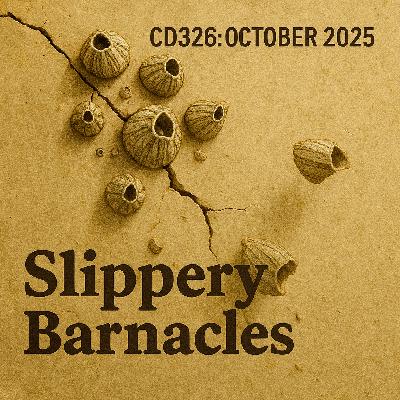
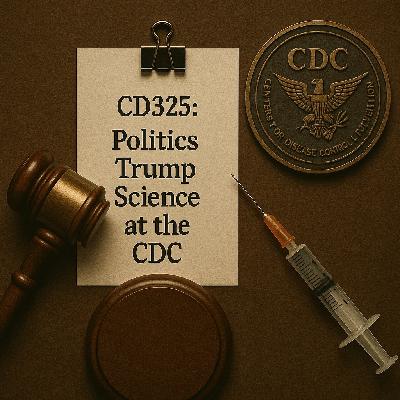



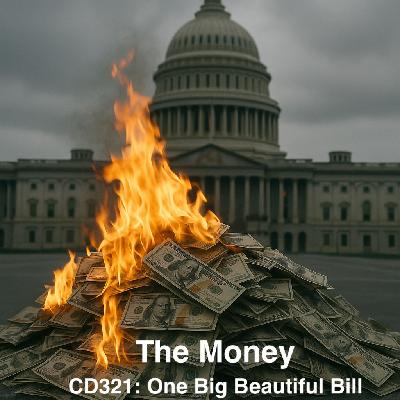

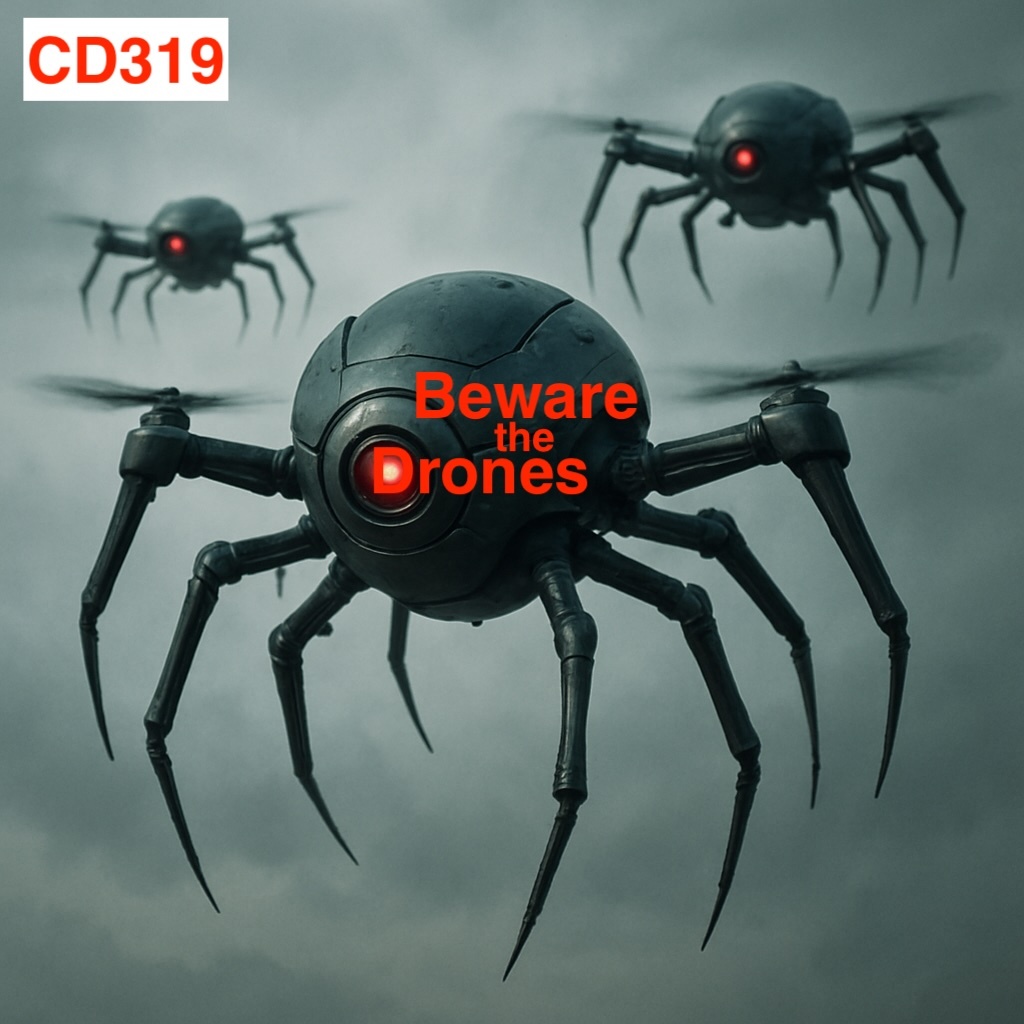



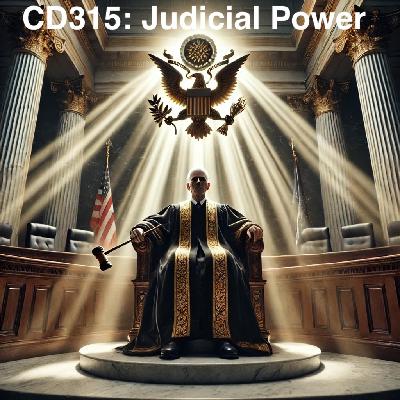



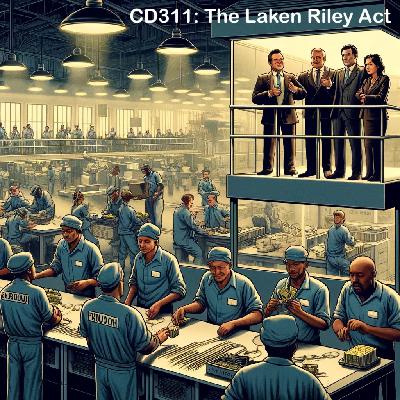




?????????????
The Iraq invasion also conveniently opened up a theretofore unused oil pipeline to Israel. Kirkuk to Haifa, if I'm not mistaken.
Jeffrey Sachs has cleaned up his act significantly since the 90s, it's kind of impressive.
Dissolving the USSR with a couple of guys from Ukraine and Belarus wasn't brilliant so much as it was flagrant criminality.
Funny, China seems to be doing relatively well. Might have been onto something.
Rob Woodall is one of those guys who needs the ol' Gulag treatment.
...and then we blew up the pipeline.
Israel is a fascist ethnocracy.
Bolton is a Resistance idiot now 😆
Fetterman is dumb as dogshit. Fucking Zionist idiot.
🔴✅📺📱💻ALL>Movies>WATCH>ᗪOᗯᑎᒪOᗩᗪ>LINK>👉https://co.fastmovies.org
This is outstanding. Listening to all that discussion in the second half about nordstream, in light of what has now happening, really puts a light on the ignored reality.
great research, very informative. One point, the democratically elected Chinese republic did not "lose " the civil war with the communist Chinese. otherwise there would be no question about the status of Taiwan. yes communist prevailed on the mainland and established an independent country. but the Chinese republic did the same thing on Taiwan. Taiwan is an independent nation state in fact even if the PPC doesn't like it, and the other countries of the world want to double-think it. the world could sell Taiwan out to the Chinese and buy a little peace but not for long. Biden is talking from two sides of his mouth when it comes to China/Taiwan and the world is a much more dangerous place because of it.
This is terrible. The UPS and FedEx are legally barred from sending letters except for very special circumstances, so the comparison isn't applicable. As for the packages, yes, the USPS is typically cheaper for small packages, but private companies become MUCH cheaper when you look at large packages. The romanticizing of postal workers was obnoxious, too. What, UPS and FedEx drivers are all just horrible people?!
this was very informative especially when you listen to the previous episode number 244. we need this information out there
wow! I'm blown away by the quality of this podcast!
This episode is phenomenal, Jen. The amount of work you put into this was clearly painstaking. I'm so grateful that your coverage has a consistent fedility to the truth - it's refreshing and sadly rare. I'm sure you're pissing both sides off and that's always a good sign! Bravo and thank you!!
53:00 roughly, it's funny how she says that it was all shown on live tv, what bullshit, the best thing we got was a couple of photos!!
although i like what she does this episode screams biase to me, too bad, hopefully im wrong
she's infatuated with a clump of stuff attach to a butt, would be better listening if she stopped saying that so much